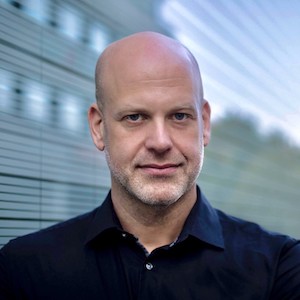What does it mean when the UN goes open source?
 Frank Karlitschek
Frank KarlitschekThree months, ago the United Nations asked me to join a new advisory board to help them develop their open source strategy and policy. I’m honored to have the opportunity to work together with a group of established experts in open source licensing and policy areas.
The United Nations wants to make technology, software, and intellectual property available to everyone, including developing countries. Open source and free software are great tools to achieve this goal since open source is all about empowering people and global collaboration while protecting the personal data and privacy of users. So, the United Nations and the open source community share the same values.
This new open source strategy and policy is developed by the United Nations Technology Innovation Labs (UNTIL). Last month, we had our first in-person meeting in Helsinki in the UNTIL offices. I find this initiative remarkable for several reasons:
- Sharing: The United Nations wants to have a positive impact on everyone on this planet. For that goal, it is important that software, data, and services are available for everyone independent of their language, budget, education, or other factors. Open source is perfect to guarantee that result.
- Contributing: It should be possible that everyone can contribute to the software, data, and services of the United Nations. The goal is to not depend on a single software vendor alone, but instead, build a bigger ecosystem that drives innovation together.
- Empowering: Open source makes it possible for underdeveloped countries and regions to foster local companies and expertise by building on top of existing open source software—standing on the shoulders of giants.
- Sustainability: Open source guarantees more sustainable software, data, and services by not relying on a single entity to support, maintain, and develop it. Open source helps to avoid a single point of failure by creating an equal playing field for everyone.
- Security: Open source software is more secure than proprietary software because the code can be constantly reviewed and audited. This fact is especially important for security-sensitive applications that require transparency and openness.
- Decentralization: An open source strategy enables decentralized hosting of software and data. This fact makes it possible to be compliant with all data protection and privacy regulations and enables a more free and open internet.
We discussed that a fair business model like the one from Nextcloud should be encouraged and recommended. Specifically, we discussed that that 100% of the code should be placed under an OSI-approved open source license. There should be no open core, proprietary extensions, dual licensing, or other limited-access components to ensure that everyone is on the same playing field.
I’m excited to have the opportunity to advise the United Nations in this matter, and I hope to have a positive influence on the future of IT, especially in developing countries.
About the author
Frank Karlitschek is a long time open source contributor and former board member of the KDE e.V. He managed engineering teams for over 20 years and worked as head of unit and managing director at different internet companies. In 2001 he created the openDesktop.org social network as well as GTK-Apps.org, GNOME-Look.org, KDE-Apps.org and other 'AppStores' before AppStores existed. He founded ownCloud in 2010 and the successor Nextcloud in 2016 to create a fully open source and decentralized…
This article was published in Opensource.com. It is republished by Open Health News under the terms of the Creative Commons Attribution-ShareAlike 4.0 International License (CC BY-SA 4.0). The original copy of the article can be found here.